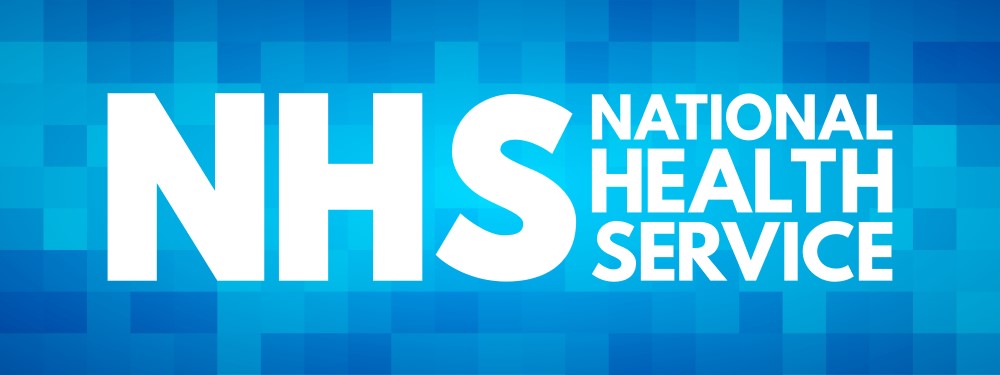Getting Started in the UK NHS
If you’re a new nurse or trying to develop your career in the UK, the NHS may provide a variety of opportunities. The NHS is the UK’s largest employer, with over 1.5 million employees, and it is committed to delivering quality healthcare to all UK people. Working through the NHS recruiting process and understanding the many career paths available can be tough. They provide a broad spectrum of employment opportunities in locations ranging from hospitals to community care centres.
In this blog article, we’ll explore the many NHS Careers available and offer advice and tools to help you get started on your career path.

Qualifications and Requirements for Nurses in the UK NHS
If you are considering a career as a nurse in the UK NHS, there are some key qualifications and requirements you will need to meet.
- Nursing Degree: The first step towards a career in nursing in the UK is obtaining a nursing degree. There are four branches of nursing to choose from: adult, children, mental health, and learning disabilities. To become a registered nurse, you will need to complete an undergraduate degree program in one of these areas. The degree program typically takes three to four years to complete.
- NMC Registration: After you have completed your nursing degree, you will need to register with the Nursing and Midwifery Council (NMC). The NMC is the regulatory body for nursing and midwifery in the UK, and registration with the NMC is mandatory for all nurses who wish to work in the UK. To be eligible for NMC registration, you must demonstrate that you have met the required standards of education, training, and practice.
- Language Requirements: As a nurse in the UK NHS, you will be working with patients who may speak different languages. Therefore, it is essential that you have a good command of the English language. The NMC requires all nurses to provide evidence of their English language proficiency, which can be demonstrated through the International English Language Testing System (IELTS) or the Occupational English Test (OET).
- Background Checks: Before you can start working as a nurse in the UK NHS, you will need to undergo background checks. This includes a Disclosure and Barring Service (DBS) check, which looks at your criminal record and other factors that may affect your suitability to work with vulnerable people.
- Ongoing Professional Development: Once you have completed your nursing degree and registered with the NMC, you will be expected to engage in ongoing professional development to maintain your skills and knowledge. The NMC requires all registered nurses to complete a minimum of 35 hours of continuing professional development (CPD) every three years.
Meeting the qualifications and requirements for nursing in the UK NHS can be a challenging and rewarding journey. By obtaining the necessary qualifications and demonstrating your skills and expertise, you can embark on a fulfilling career as a nurse in one of the world’s most respected healthcare systems.

How to Apply for a position with the UK NHS
Applying for a nursing position with the UK NHS can be a daunting task, but with the right information and preparation, the process can be much smoother. Here are some steps to follow when applying for a nursing position with the NHS:
- Research the NHS Careers Website: The NHS Careers website is a great place to start when looking for information about nursing positions within the NHS. This website provides information about the different types of nursing roles available, the qualifications and experience required, and how to apply for these roles.
- Prepare Your CV and Cover Letter: When applying for a nursing position with the NHS, it is important to prepare a strong CV and cover letter. Your CV should highlight your relevant skills and experience, while your cover letter should demonstrate your passion for nursing and your desire to work for the NHS.
- Complete the Application Form: Most NHS nursing positions require you to complete an online application form. It is important to read the instructions carefully and ensure that you provide all the required information.
- Prepare for the Interview: If you are successful in your application, you will be invited to attend an interview. This is your chance to demonstrate your suitability for the role, so it is important to prepare thoroughly. Research the role and the NHS trust you are applying to, and prepare answers to common interview questions.
- Follow Up: After your interview, it is important to follow up with the interviewer to thank them for their time and reiterate your interest in the position.
Choosing a NHS Career with the UK NHS can be a competitive process, but with the right preparation and a positive attitude, you can increase your chances of success. Remember to showcase your passion for nursing and your commitment to providing high-quality care to patients, and you’ll be well on your way to a rewarding NHS career.

What to Expect During the Hiring Process
When applying for a nursing position with the UK NHS, it is important to know what to expect during the hiring process. Here is a breakdown of the different stages of the hiring process:
- Application: The first step in the hiring process is submitting an application through the NHS website. This is where you will provide your personal and professional information, including your qualifications and experience.
- Assessment: Once your application is received, it will be assessed to determine if you meet the minimum qualifications for the position. If you are successful, you will be invited to the next stage of the hiring process.
- Interview: The interview stage is an opportunity for the hiring team to get to know you better and assess your suitability for the position. They may ask questions about your experience, qualifications, and values. It is important to prepare for the interview by researching the NHS and the specific role you are applying for.
- Job offer: If you are successful in the interview stage, you will be given a job offer. This offer will include details about the position, such as salary, working hours, and start date. It is important to read the offer carefully and ask any questions you may have before accepting.
- Pre-employment checks: Before you can start working for the NHS, you will need to complete a number of pre-employment checks. These may include a criminal record check, occupational health assessment, and verification of your qualifications and experience.
- Induction: The final stage of the hiring process is induction, where you will be introduced to your new colleagues and provided with training on the policies and procedures of the NHS.
Overall, the hiring process for a nursing position with the UK NHS can be rigorous and lengthy. However, it is important to be patient and persevere through each stage to secure your dream career in healthcare. Remember to stay up-to-date with the latest job openings and be prepared to showcase your skills and experience during the application and interview process.

Preparing for Your First Day
Congratulations! You’ve landed your dream job and starting off your NHS career. Starting a new job can be nerve-wracking, but with some preparation, you can feel confident and ready for your first day.
Here are some tips to help you prepare:
- Review your job description and responsibilities: Make sure you have a clear understanding of your role, duties, and responsibilities. You can find this information in your job offer letter or by contacting your employer’s HR department. Knowing what is expected of you can help you hit the ground running on your first day.
- Familiarize yourself with the facility: If possible, visit the facility before your first day to get a sense of the layout and where important areas are located, such as the break room, restrooms, and supply closets. If you can’t visit in person, ask for a virtual tour or map of the facility.
- Dress appropriately: Make sure you know the dress code and any requirements for your job. Plan your outfit in advance and ensure it is clean and ironed. Dressing professionally can help you make a good first impression and feel confident on your first day.
- Get a good night’s sleep: Being well-rested can help you stay focused and alert during your first day. Make sure to get a good night’s sleep the night before and avoid staying up too late or drinking alcohol.
- Bring necessary items: Make a list of any items you need to bring with you on your first day, such as your ID, uniform, and any paperwork your employer requires. Double-check that you have everything you need before leaving home.
- Ask questions: Don’t be afraid to ask questions if you’re unsure about something. Your colleagues and supervisors are there to support you and help you succeed. It’s better to ask questions and clarify expectations than to make assumptions and mistakes.
Starting a new job can be challenging, but with preparation and a positive attitude, you can have a successful first day

Continuing Education and Professional Development Opportunities with the UK NHS
Continuing education and professional development are critical components of a successful NHS career. The NHS is committed to ensuring that its nurses have access to the most up-to-date knowledge and training to provide the highest quality care to patients.
As a professional working in the UK NHS, you will have access to a wide range of continuing education and professional development opportunities. These may include:
- In-house Training: Many NHS trusts offer in-house training programs that are tailored to the needs of their staff. These programs cover a wide range of topics, from clinical skills to leadership and management training.
- Continuing Professional Development (CPD): The Nursing and Midwifery Council (NMC) requires all nurses to undertake a minimum amount of CPD each year to maintain their registration. The NHS provides a range of CPD opportunities, including online courses, workshops, and conferences.
- Higher Education: The NHS supports nurses who wish to pursue higher education qualifications, such as a Bachelor’s or Master’s degree. There are a variety of funding options available, including bursaries and student loans.
- Preceptorship: If you are a newly qualified nurse, the NHS offers a preceptorship program to help you make the transition from student to registered nurse. The program provides support and guidance from an experienced nurse for up to 12 months.
- Mentoring: The NHS also offers mentoring programs to help nurses develop their skills and knowledge. Mentoring relationships are typically more long-term than preceptorship and can provide valuable career guidance and support.
By taking advantage of these continuing education and professional development opportunities, you can enhance your skills and knowledge, improve patient outcomes, and advance your NHS career. So, don’t hesitate to explore the different opportunities available to you and take the first step towards achieving your career goals in the UK NHS.

Challenges and Solutions for Nurses Starting Out in the UK NHS
One of the biggest challenges that nurses starting out in the UK NHS face is adapting to the fast-paced and demanding work environment. As a new nurse, you may feel overwhelmed with the workload, complex procedures, and high patient caseloads. Additionally, cultural differences, language barriers, and communication issues can further exacerbate the challenge of adjusting to the NHS work environment.
To overcome these challenges, it is important to stay focused, organized, and proactive. Familiarize yourself with the healthcare system, policies, and procedures. Seek guidance and support from experienced colleagues, mentors, or supervisors. Attend training programs and workshops to develop your skills and knowledge. Moreover, be willing to adapt to new situations and be open to learning from your mistakes.
Another challenge that nurses face in the UK NHS is career advancement. Although there are various career paths and opportunities available in the NHS, it can be difficult to navigate the system and find the right career path for you. Additionally, a lack of recognition, limited opportunities for professional development, and poor work-life balance can further hinder your career advancement.
To overcome these challenges, it is important to have a clear career goal and a plan for achieving it. Consider further education, certification programs, or specialty training to enhance your skills and knowledge. Attend networking events, conferences, or seminars to expand your professional network and gain new insights into the healthcare industry. Moreover, seek opportunities for leadership, mentorship, or advocacy roles within your organization or community.

Tips for Success in Your UK NHS Nursing Career
- Stay up-to-date with best practices and guidelines: The healthcare industry is constantly evolving, and it is crucial for nurses to stay up-to-date with the latest research, best practices, and guidelines. You can do this by attending conferences, workshops, and training sessions. You can also keep yourself informed by reading medical journals and attending webinars.
- Cultivate good communication skills: Good communication skills are essential in nursing. You will need to communicate with patients, their families, and other healthcare professionals. You must be able to communicate clearly and empathetically, using non-technical language.
- Be compassionate and empathetic: Nursing is a profession that requires compassion and empathy. Patients are often going through difficult times, and it is crucial to show them that you care. Being compassionate and empathetic can go a long way in building trust and rapport with patients.
- Practice good time management: As a nurse, you will be responsible for multiple tasks at once. It is essential to prioritize tasks and manage your time effectively. This can help you meet deadlines and ensure that your patients receive the care they need.
- Seek out opportunities for professional development: The NHS offers numerous opportunities for professional development, such as courses, training, and mentoring. Take advantage of these opportunities to enhance your skills and knowledge.
- Build a strong support network: Nursing can be challenging, and it is essential to have a support network to help you through difficult times. This can include colleagues, mentors, and family members.
- Prioritize self-care: Caring for others can be physically and emotionally exhausting. It is crucial to prioritize self-care, including exercise, healthy eating, and taking time to relax and recharge.
Conclusion: Making the Most of Your Career with the UK NHS
In conclusion, starting a career in the UK NHS can be challenging, but with the right mindset, strategies, and solutions, you can overcome obstacles and thrive. Stay focused, proactive, and open-minded, and never stop learning and growing in your role as a nurse. The NHS offers a wealth of opportunities for career advancement and professional development, so take advantage of them and enjoy a fulfilling and rewarding NHS career.
Useful Links
- https://www.healthcareers.nhs.uk/explore-roles/nursing/nursing-career-structure
- https://www.nursingtimes.net/careers/career-advice/how-to-get-a-job-in-the-nhs-as-a-newly-qualified-nurse-16-04-2019/
- https://www.nmc.org.uk/registration/getting-on-the-register/
- https://www.rcn.org.uk/get-involved/career-resources/nhs-careers
- https://www.healthcareers.nhs.uk/career-planning/study-and-training/continuing-professional-development-cpd-nurses-and-midwives



